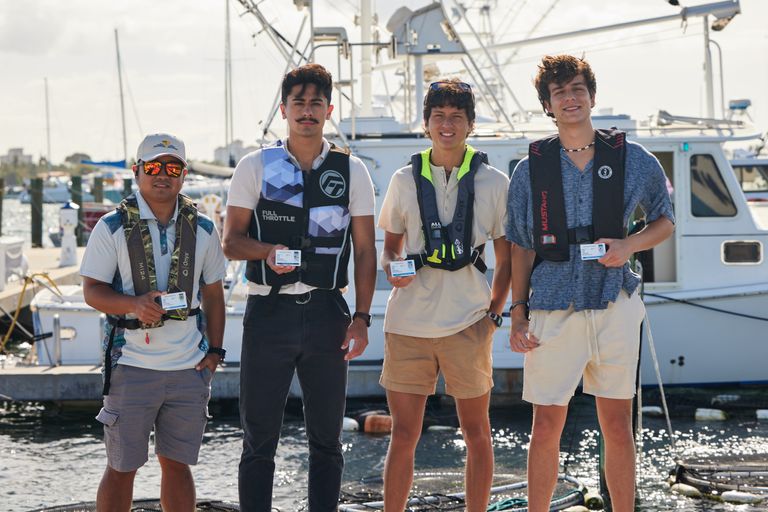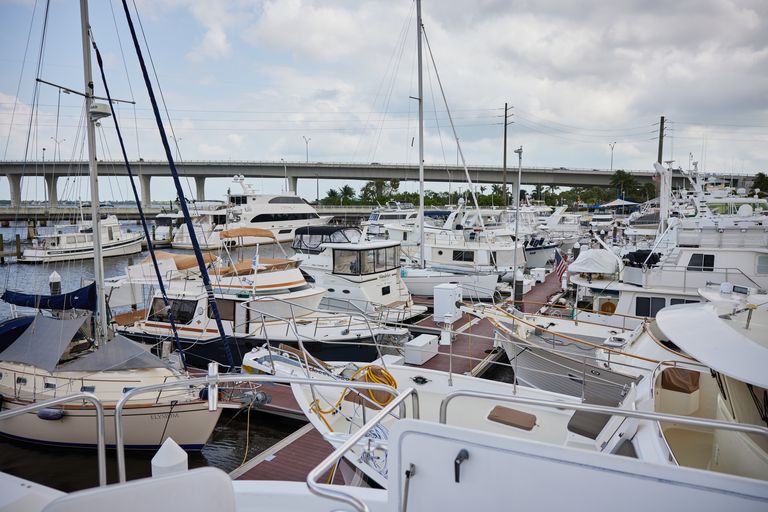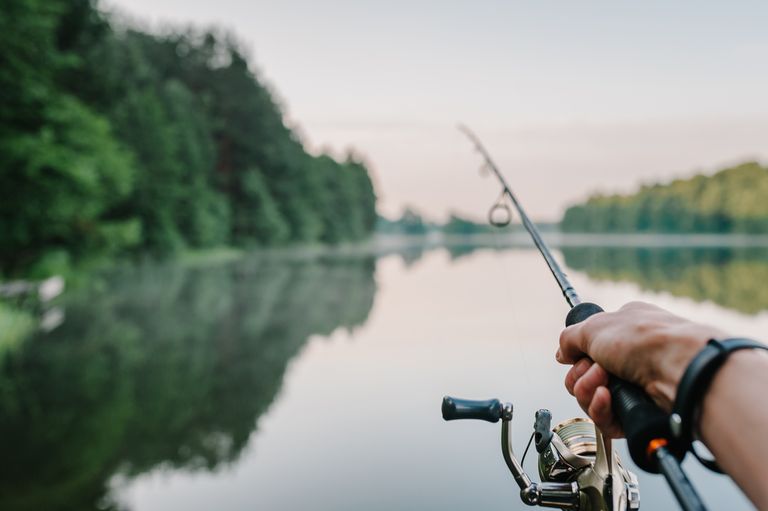Top 7 Tips for Staying Safe When Fishing This Season
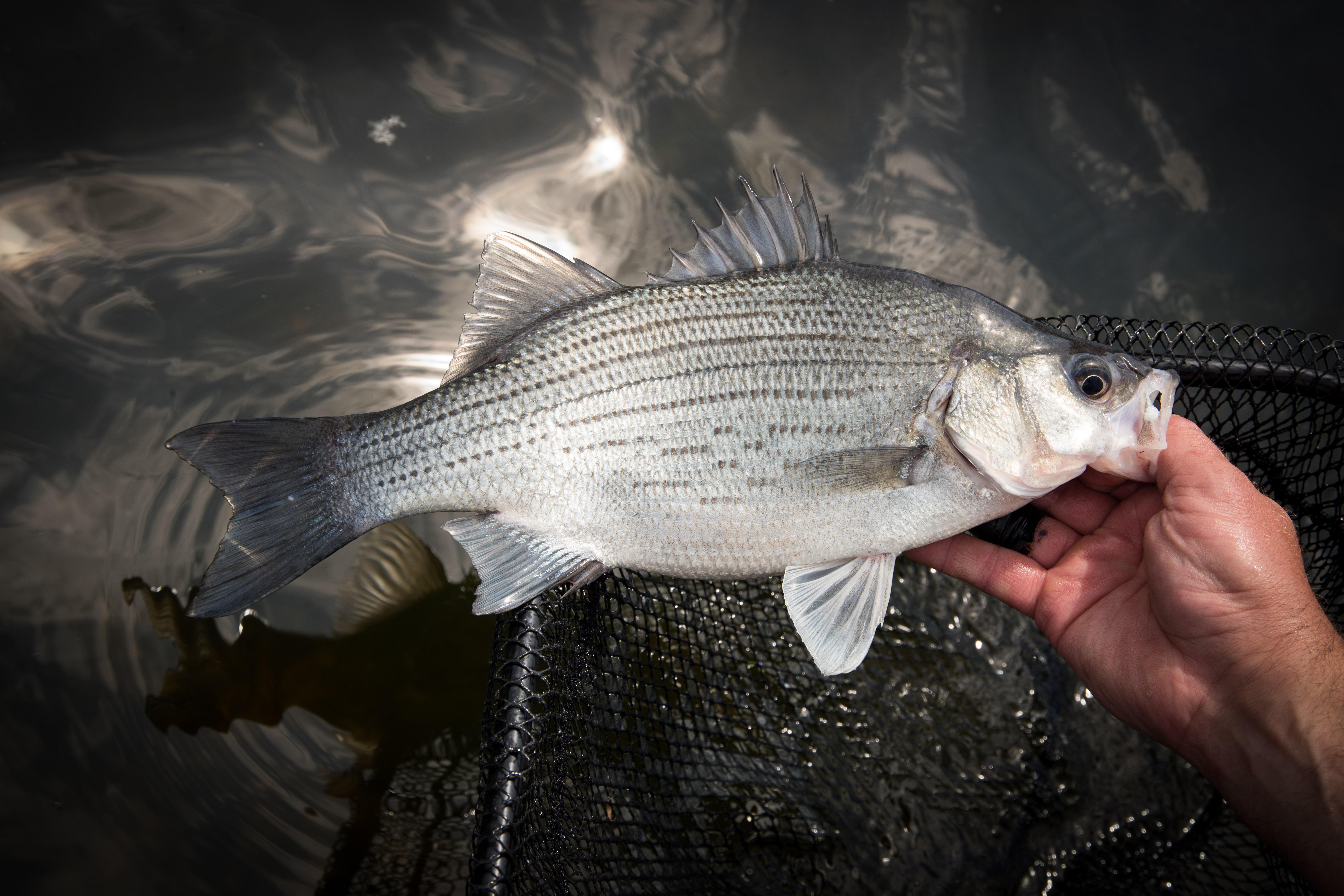
When you're planning a great fishing season, there are a lot of things you'll want to consider. From the weather to emergencies like a person overboard in cold water, you need to be ready for anything your adventures bring.
Here are seven of the top tips for staying safe this season so you can have peace of mind and enjoy your time out on the water while fishing for your favorite catch.
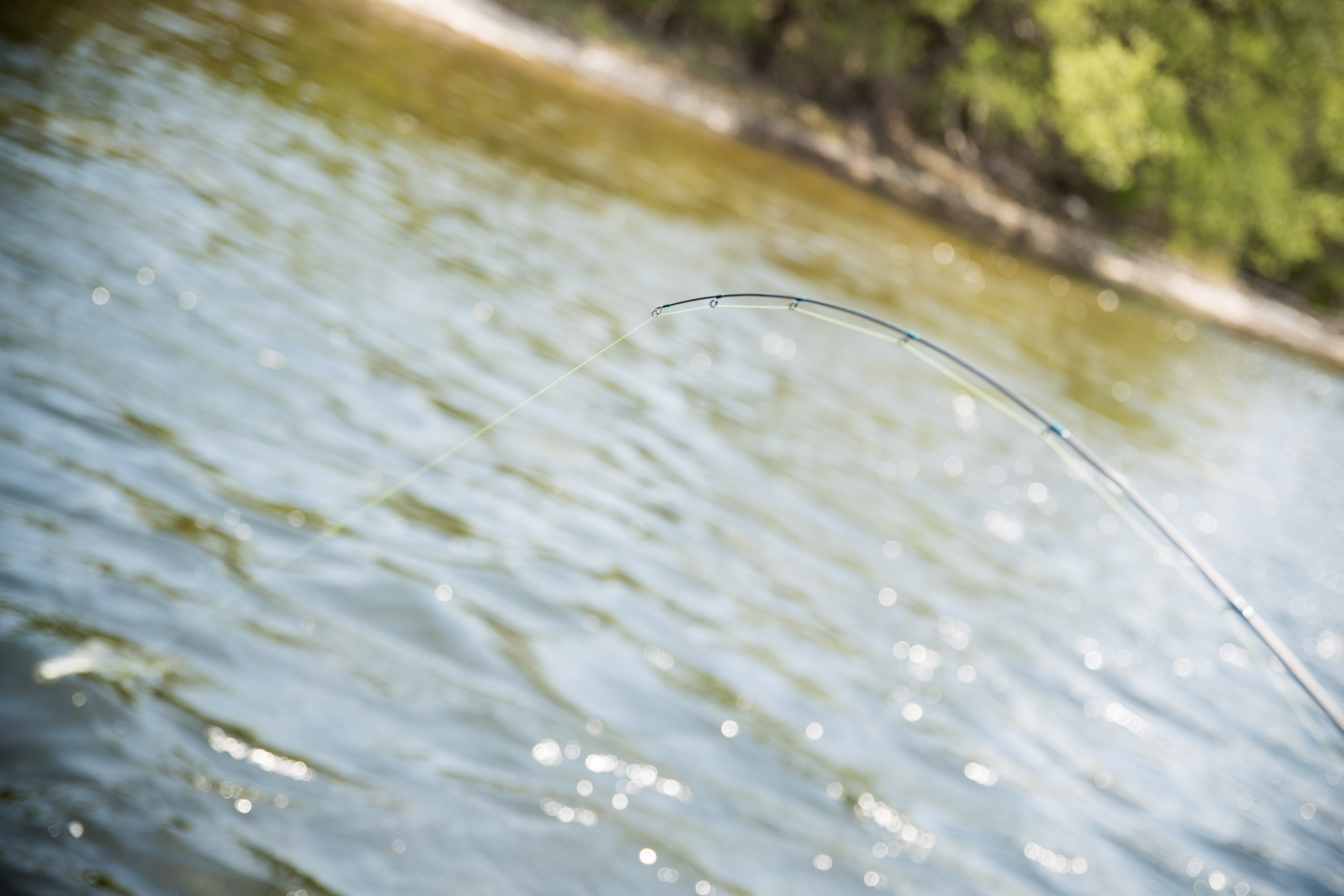
1. Be Aware of the Weather
Keeping an eye on the weather forecast is crucial to getting out on the water and catching fish safely. If you don't check the weather in the days leading up to your trip and don't take another look before heading out, you could be putting yourself at significant risk.
Fishing during storms or extreme weather conditions is never a good idea. Rescheduling your trip is a much better choice. Although rescheduling can be disappointing, it's the best way to protect yourself and anyone planning to go with you.
2. Bring Proper Equipment and Gear
You need the right gear to catch fish, but you also need proper safety equipment.
For example, you need to wear a life jacket if you're catching fish from a boat. That's particularly important if you're in deep water, but you can also be at risk in shallower areas.
Not only do you want to make sure you have the right equipment, but you also need to focus on inspecting and maintaining it properly. If you don't do that, you could end up in an emergency with equipment that won't help you.
Life jackets eventually lose their buoyancy and don't work as well, meaning they could fail in a critical moment if they are not in good condition or past their "best use" dates. Additionally, emergency preparedness items such as fire extinguishers must be replaced when they expire.
3. Wear Sun Protection
Protecting yourself from the sun's harmful UV rays is crucial. You can do that by wearing sunglasses, a hat, and sunscreen. You may also want to choose a lightweight shirt with long sleeves to help reduce the amount of sun on your arms.
ven during a cloudy, cool day, you're exposed to the sun's rays, so you want to keep yourself safe with the right sun protection.
Also, remember to stay hydrated and seek shade when needed. Sunburn isn't the only risk when on the water all day. If it's hot outside, you could also be at risk for heat exhaustion.
Fortunately, you can avoid these problems with some preparedness and care.
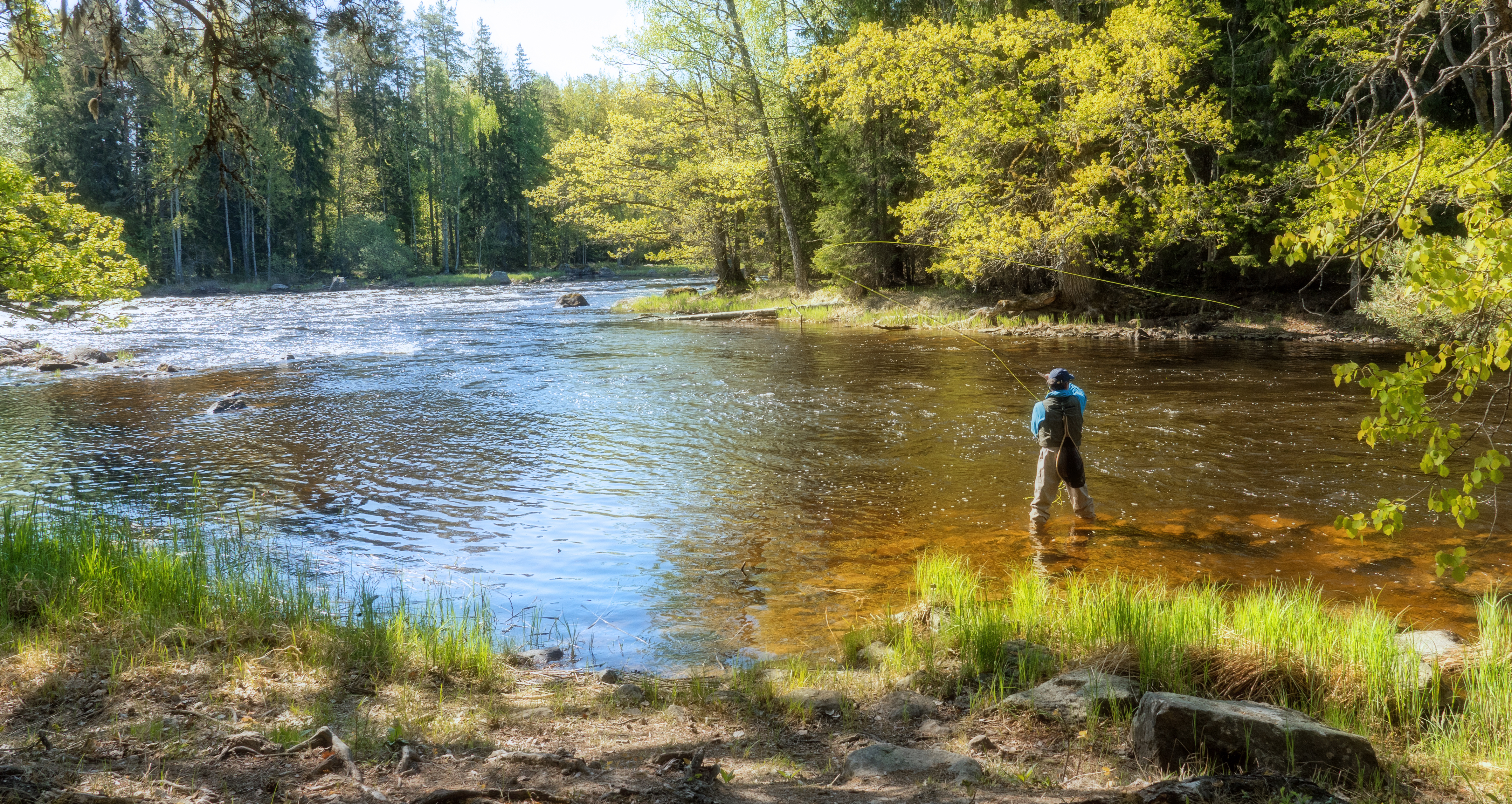
4. Know Your Surroundings
You should be familiar with your fishing location, including the potential hazards in the area. Be aware of slippery rocks, strong currents, and hidden obstacles, as these can all pose dangers when catching fish from a boat or wading into the water near the shore.
Catching fish can be a relaxing adventure, but you must stay aware of your surroundings and exercise caution to stay as safe as possible. You can't prepare for everything, and sometimes accidents happen, but every angler should know where they're at and what to look out for when catching fish.
Also, be sure to share your location with a friend or family member before heading off to your favorite fishing hole. If you don't return on time because something goes wrong, they'll know where to send help.
5. Use the Buddy System
If possible, take someone with you during your adventures. Bring another angler or someone else to keep you company. Having a friend or family member with you reduces your risks because someone can watch out for danger and get help if needed.
Even if you're used to the area where you'll be catching fish, something could go wrong. The peace of mind that comes with having someone there is essential.
It's also smart to take someone with you when fishing in unfamiliar or remote areas to help ensure you aren't alone in a location where you don't know the terrain or how to get help.
6. Understand First Aid Preparedness
Carry a basic first aid kit with you, and know how to use it for minor injuries or emergencies. The most common injuries when angling include cuts or hook wounds, but there are always risks of other problems.
The more you know about proper first aid, the more quickly you can treat yourself or someone else if medical care is needed. While you can't carry every medical supply or aid that might be required, a basic kit can go a long way toward protecting yourself and the anglers who are with you.
7. Respect Wildlife and the Environment
Make sure to follow regulations in your local area and practice responsible angling techniques. You can also help with sustainable angling and conservation efforts when you practice catch-and-release for any fish you encounter.
By being careful with the environment, you and others can catch fish and enjoy boating in the area for the long term. It's a great way to do your part for the planet while having fun.
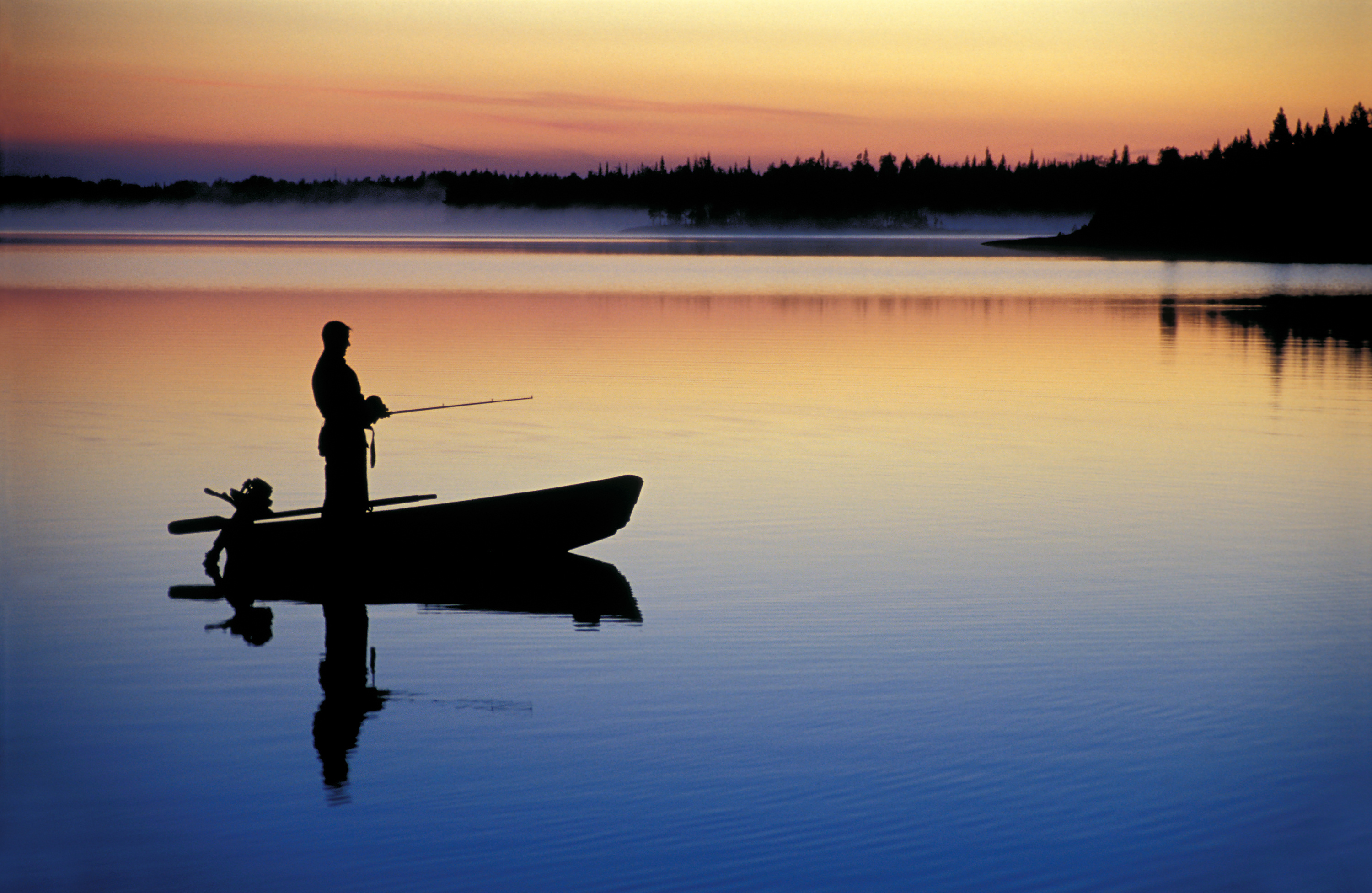
Bonus Tip: Take a Boating Safety Course
If you primarily fish from a boat, the best way to stay safe while reeling in your catch of the day is to take a boating safety course.
In the U.S. and Canada, boaters are required to pass a safety certification to get a boating license. However, beyond this requirement, the knowledge you gain from a state-approved or Canada-approved course could save a life while fishing in your favorite spot.
Get Certified for Safety and Peace of Mind While Fishing
Boaters and anglers can help protect themselves and others by getting safety certified before hitting the water this season. A boater safety course is the best way to stay safe when catching fish from a boat, and it's a great way to learn what you need to know to have more fun and adventure on the waterways.
Think of the peace of mind you'll have while escaping to your favorite fishing spot for a day of quiet on the water when you know how to prevent boating and fishing accidents! Preparation can make the difference between a successful day of fishing and something going wrong that will ruin it or cause an injury.
So, before you head out for your next fishing trip, get safety certified! Choose our Canada-approved course and start learning. If you boat and fish in the U.S., find the course for your state and get certified.

